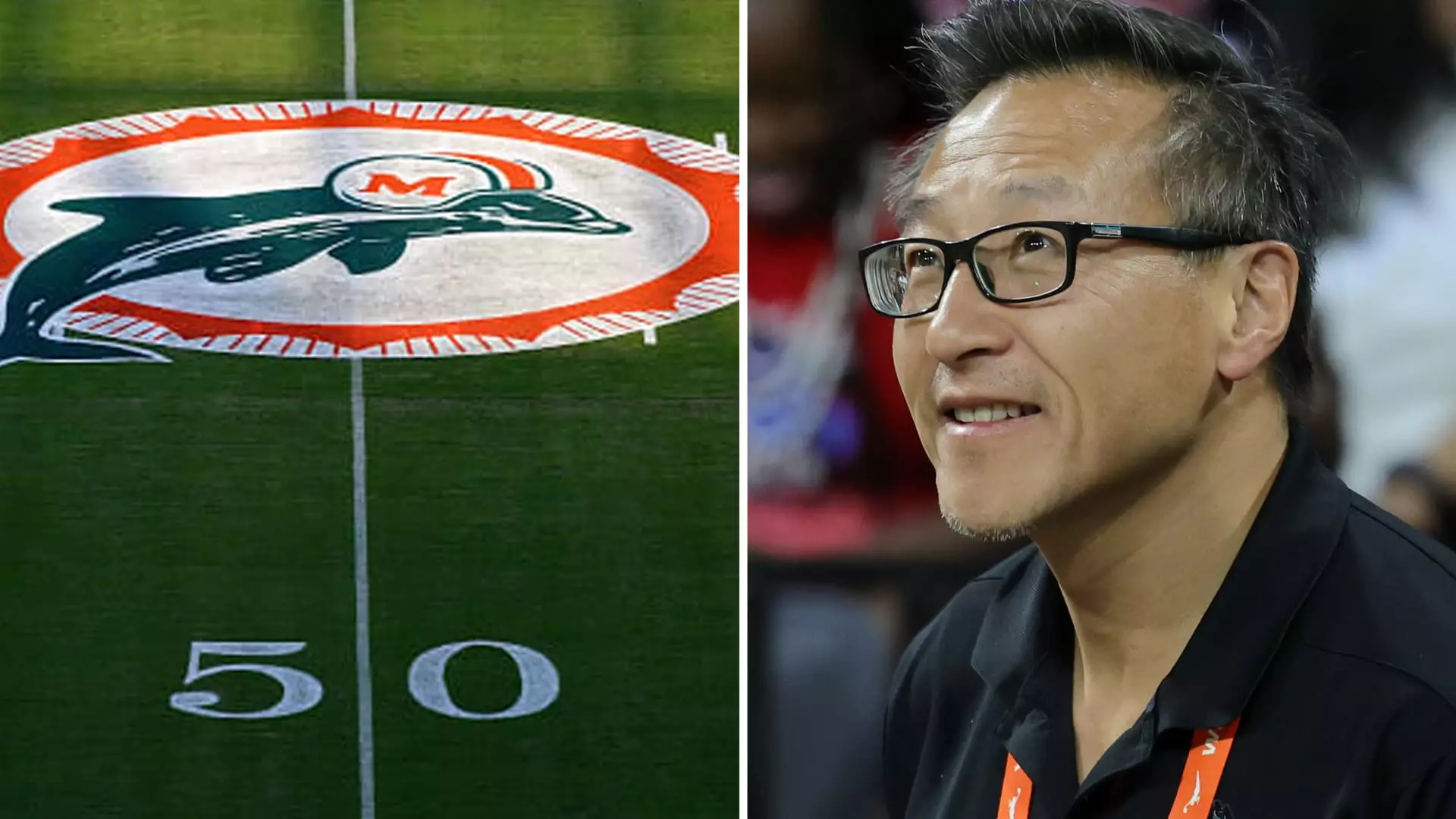The landscape of professional sports is undergoing a transformative shift, particularly in how franchises are owned and operated. A recent development concerning the Miami Dolphins illustrates this trend as the franchise enters talks to sell a minority stake to Ares Management, a private equity firm, along with billionaire Joe Tsai, who also owns the Brooklyn Nets. This move highlights a broader trend where team owners are increasingly seeking to diversify their investments and maximize revenue through strategic partnerships and assets management.
Currently valued at approximately $7.1 billion—excluding the assets of Hard Rock Stadium, which adds a significant financial weight—the Dolphins stand as the NFL’s eighth most valuable team. The stake being negotiated with Ares and Tsai is indicative of the growing financial complexities in sports ownership. While the minority stake being sold comprises a mere 10% from Ares and an additional 3% from Tsai, the overall deal encapsulates a valuation of $8.1 billion for the entire sports portfolio, which includes not just the football team but also rights to the Miami Grand Prix F1 race and significant events like the Miami Open tennis tournament.
Despite the impressive figures associated with the franchise, it becomes crucial to analyze why there appears to be eagerness to involve private equity in NFL operations now. Following adjustments to the NFL’s rules in August regarding private equity investments, the league, which historically maintained a rigid separation from such capital, has slowly begun to adopt more flexible financial structures amid rising valuations and increasing operational costs.
The investment from Ares Management and Joe Tsai also underscores a trend of owners wanting to build diverse sports portfolios. Real estate titan Stephen Ross, who purchased the Dolphins for $1.1 billion in 2009, has clearly seen the potential in sports as a lucrative investment outside of conventional assets. His desire to reinforce his real estate holdings in South Florida with the proceeds from this minority stake sale reflects a strategic pivot toward multipronged revenue sources.
Ross has not only maintained the Dolphins but is keenly aware of the financial potential that comes from owning the stadium and the associated sporting events. In 2023, the Dolphins reported a staggering $673 million in revenue, showcasing the cash flow that can be generated from a well-managed sports franchise. This intertwining of real estate and sports not only diversifies income but also consolidates power within the community, giving owners like Ross an unparalleled foothold in both domains.
The fact that the Dolphins are in talks with private equity for the first time since the NFL modified its investment regulations reflects a significant evolution in the market dynamics of professional sports. The NFL, being the last major professional sports league to embrace private equity investment, has softened its stance amid challenges in identifying potential buyers as franchise valuations skyrocket.
Ares Management, with a robust asset management portfolio of around $450 billion, represents a formidable partner for the Dolphins. The partnership could ultimately enhance operational capabilities and foster further growth both on and off the field. Moreover, Tsai’s interest in increasing his sports ownership demonstrates his ambition to create a comprehensive sports empire, where diverse franchises generate revenue collectively rather than in isolation.
The Miami Dolphins’ negotiations present a fascinating case study on the evolving nature of sports ownership. As owners increasingly integrate various assets like stadiums and major sporting events within their portfolios, and as the NFL warms up to private equity involvement, the thresholds of traditional franchise ownership are being redrawn. This evolution not only redefines economic models in sports but potentially transforms the relationship between franchises, their communities, and capital markets at large.
While Stephen Ross and other owners may seek financial returns, they are also tapping into a broader ambition to reshape how sports franchises operate in an increasingly competitive and lucrative landscape. The Dolphins’ journey towards embracing private equity signifies a broader trend that could very well set the pace for future investments and ownership structures within professional sports.


Leave a Reply